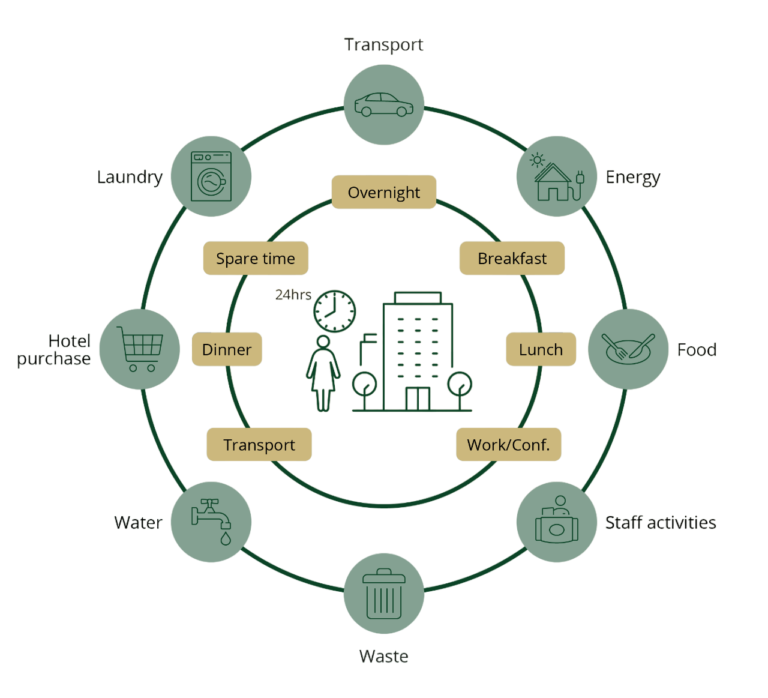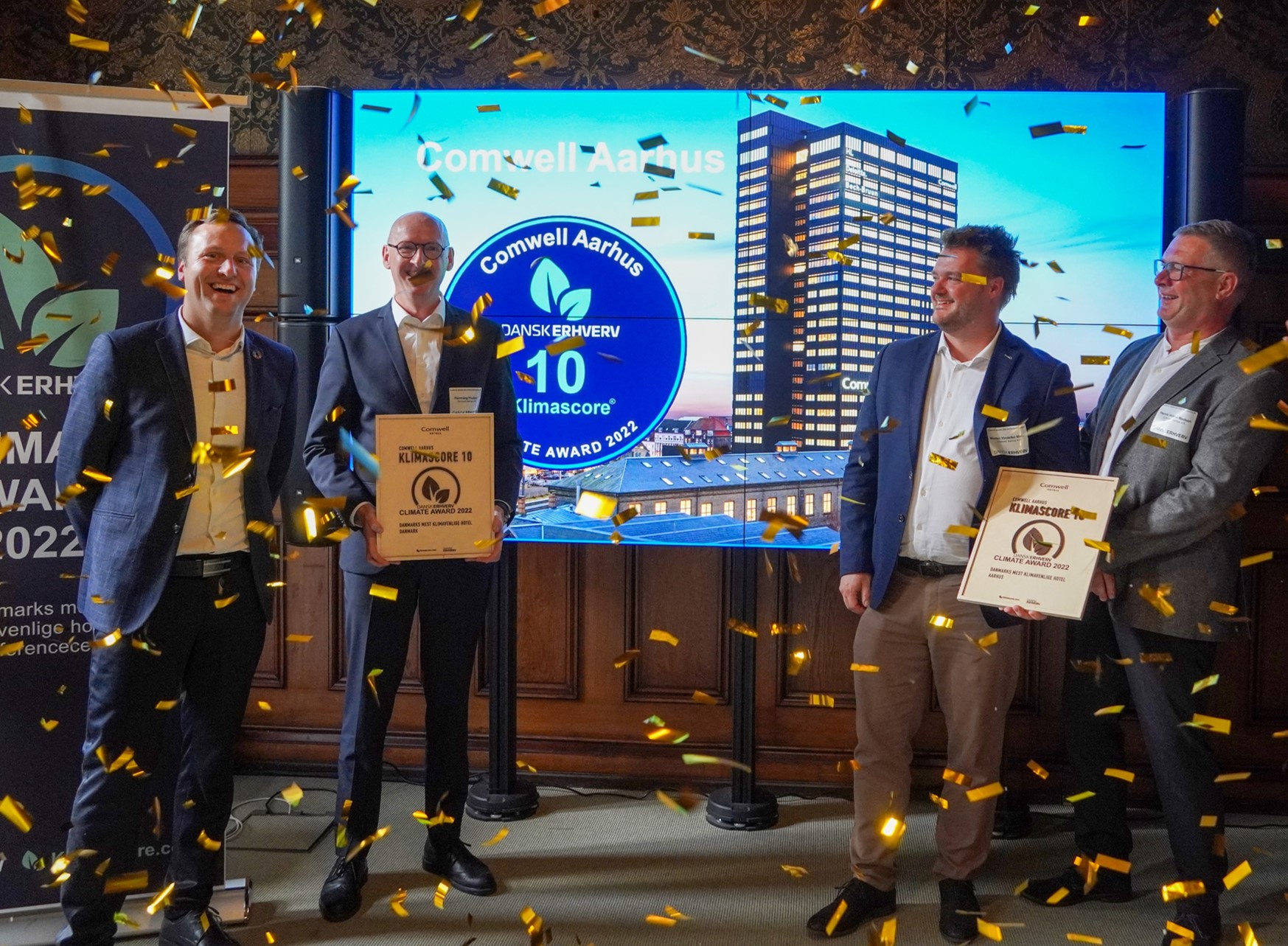
Behind the scenes of the Climate Score Award, you’ll find a dedicated advisory board, fact-based data, various categories, and a validated method. The assessment is based on eight areas of effort, applicable from January 1, 2022, to December 31, 2022. You can learn more about the Climate Score method here, which has undergone an ISO review.
It has been assessed by, among others, the Danish Technological Institute and found to be in compliance with ISO 14040/14044 and good Life Cycle Assessment (LCA) practices, as well as being scientifically and technically valid

Energy and Water: The CO2 footprint for energy and water is calculated based on information about energy quantities such as cubic meters of gas, MWh for district heating, kWh for electricity, as well as certificates for electricity and heating or documentation of own production. Hotels that have implemented measures such as heat pumps, insulation, or automatic lighting can see significant benefits.
Transport: The CO2 footprint for transport is calculated based on information about the distribution of travel by car, electric car, bus, and train for employees and guests, as well as the distance to train stations and to urban centers. Hotels that have implemented measures such as the installation of charging stations can see clear benefits.
Food and Beverages: The CO2 footprint for food and beverages is calculated based on the hotel’s expenses and amounts specified under subcategories, for example, kilograms of beef, chicken, milk, etc., and whether the product is locally produced. Hotels that have implemented measures such as meat-free alternatives or prioritizing poultry on the menu can see a difference.
Waste: The CO2 footprint for waste is calculated based on information about the amounts of waste specified by waste fractions, for example, metal, combustible waste, etc. Hotels that have implemented measures such as minimizing food waste and reducing printing can stand out from the rest.
Hotel Purchases: The CO2 footprint is calculated based on information about quantities specified under subcategories such as light sources, cleaning products, electronic products, and more. Hotels that have implemented measures such as converting to energy-saving light sources and general climate work can significantly stand out.
Service: The calculation of the CO2 footprint is assessed based on the amount of external laundry service. Hotels that have implemented measures such as nudging for the reuse of towels and focusing on reducing laundry in operations can stand out.
Employees: Without staff, there is no hotel operation. Their contribution to emissions is based on the number of employees, as well as information on whether the hotel rents spaces outside the building for their employees, which results in emissions.
2023: The Categories
12 awards – one national, eight regional winners. In addition, there’s this year’s ‘newcomer’, this year’s accelerator and Small hotels of the year. Given to hotels or conference centers that have the lowest documented CO2 emission per hotel guest.
Climate Score Award is based on facts about the eight areas associated with staying at a hotel, namely transport, energy, food, beverages, waste, water, hotel purchases, and service.
- Denmark
- Newcomer of the year
- Accelerator of the year
- Small hotel of the year
And regional:
- København
- Århus
- Sjælland og Øer
- Nordsjælland
- Fyn og Øer
- Nordjylland
- Midt- og Sønderjylland
- Trekantområdet


Ready to take your sustainability efforts to the next level? Explore our range of ClimateScore products designed to optimize your climate-conscious journey. From entry-level solutions to industry-leading performance, we have everything you need to excel in sustainability.